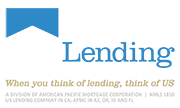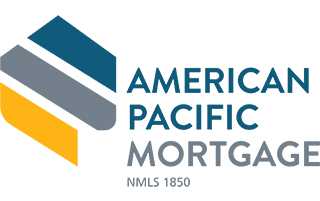Home Equity Loans, What are They and How do They Work?
As soon as a person reaches the wonderful status of being a homeowner, the realization of home equity and what it actually represents begins to occur as the second stage of homeownership. Home equity can be a powerful asset and tool to use, but it should be done with care. Many a homeowner has gone too far with the equity that was available and then found themselves overextended financially.
What is a Home Equity Loan?
Home equity represents the actual ownership value a homeowner has in his or her home. This equity value begins when a person buys a home and pays a down payment. The down payment, if in cash and not due to another loan, is the actual amount of real ownership in the property. In most cases, people will pay a mortgage for years. As the mortgage is paid down, the homeowner’s equity share increases accordingly.
How Home Equity Loans Work
There are a variety of tools available by which to leverage one’s home equity for financial advantages. All of these tools involve creating a new loan based on the equity value the homeowner has in a residential property. While an original mortgage has first call on the home if not paid, an equity loan functions as a second mortgage, being able to use the equity side as collateral for that second loan.
Fixed-Rate Loans
A home equity fixed-rate loan is exactly that, a loan using the equity as collateral to support a set amount loan with a given rate of interest. The loan amount cannot be increased further after closing and can only be paid down. If not paid in full, the lender can make a call on the house to recover the loan via a lien for the second mortgage.
Home Equity Lines of Credit
A home equity line of credit, or HELOC, works differently than a fixed loan. Far more similar to a credit card, a HELOC provides a revolving amount of credit that is capped. The homeowner can use the HELOC to purchase things, such as materials for repairing the house, and pay down the HELOC afterwards. However, unlike the fixed loan, the HELOC is available to be used again and again as long as the lender is willing to keep the line of credit open. Again, the home equity backs the revolving line of credit as collateral, allowing a lien if things go bad.
How Does Collateral Work?
Collateral in a loan is essentially giving someone a right to force the sale of an asset the borrower owns to satisfy an outstanding loan. In the case of equity, the equity lender would be giving the right to attach a lien to a home if not repaid. This means the home cannot be transferred, sold or given away without the equity lender being paid in full first. In some cases, a lender can go to court to force a lien to be satisfied with a forced sale of the property.
How the Repayment Works
Repayment is essentially the process of paying down an outstanding loan. For an equity loan or HELOC, the homeowner meets monthly payment requirements or pays off the balance owed in full. Both satisfy the loan and close the matter. However, in the case of the HELOC, the line of credit can be used again and again.
Why do People Tap Into Their Home Equity?
People tap their home equity for a variety of reasons. Modern life requires that many major challenges, things and accomplishments in life require large cost outlays. Buying a home, a new car, going to college and similar items all cost large amounts of money. The average person does not have these funds typically saved up in full in a savings account. With homeowners, however, many have been making payments over time to their original mortgage, building up equity. That equity can then be used to borrow against and fund new big purchases instead of waiting a long period trying to save a bit at a time.
Many homeowners see equity as a way to solve other financial problems as well. For instance, a homeowner may have a number of consumer loans and credit cards and a car loan outstanding. Managing all these payments can be a task, and many of them have far higher interest rates and borrowing cost. With an equity loan or HELOC, the homeowner can exchange “bad” debt with high interest for “good” debt, via equity, and lower cost. Most equity loans are provided with interest rates in the low single digits versus a credit card balance that is typically at 18 percent or higher.
What are the Benefits?
Equity borrowing is far better on a credit report than consumer debt. Because equity borrowing is tied to collateral, the home, it’s a much safer form of financing. So the borrower is given a higher credit score as a result when the debt is shifted over.
Competitive Rates
For the same reason a credit score goes up with equity borrowing, interest rates are lower. Rates are tools lenders use to offset the costs of risk when lending. However, when a home is involved, the risk of loss is very low because the home becomes the collateral where an equity loan is in default.
Easy to Qualify
Home equity loans are typically far easier to qualify for, again due to the fact that the home is the collateral for the loan. Granted, a borrower should still maintain good financial practices to avoid distractions in review. However, approval goes through with a higher frequency due to being a secured loan versus an unsecured one, like a credit card.
Borrow Large Amounts
Another big advantage of equity borrowing is, depending on the amount of equity owned at application, the loan can be sizable. This means a borrower can use his or her equity to finance very big purchases like installing a home pool or buying a car.
Potential Tax Benefits
Additionally, where it applies and borrowers should always check with a certified tax planner or lawyer first, borrowing from equity can be tax-deductible. The laws have changed in 2018 but most borrowers don’t have nearly the amount in real estate interest needed to trigger the new deduction limitations. That means the borrower can get back some of the interest paid into an equity loan via tax refund or lower income taxes due.
Safe for Lenders
The home the equity comes from is the lender’s protection. No matter what bad happens, the lender can always apply a lien due to the powers provided in an equity loan and eventually seek satisfaction of the lien via the court process. So the lender is protected with essentially a “secured” loan package agreement.
Pitfalls You Should Be Aware Of
While home equity can seem like a great personal bank to borrow from, there are disadvantages to be aware of before stepping into this arena.
Reloading
So much in modern life is designed to get people to borrow now for big things and pay over time. For the lenders, it’s big business and profits. For the borrower, it’s convenient and easier to get things desired now and pay back later. However, getting into a trap of constantly borrowing and paying equity becomes what is known as “reloading,” or habitually borrowing down equity. That means the home involved will never be fully owned and paid off until the trend stops and the equity loan, as well as the original mortgage, are paid in full. That can be a big problem if someone continues to borrow all the way into retirement and then suddenly finds himself in a fixed income situation with a ton of debt payments still due.
Fees
Every loan, regardless of type, involves brokerage and origination fees. These can be in the thousands of dollars with big equity loans. It’s sheer money lost and paid as fees to get the loan, and the cost is above and beyond the interest paid on the loan repayment. Are the fees really worth whatever is being bought with the equity funding? That’s the question a borrower has to ask before committing.
Should You Use a Home Equity Loan?
There’s no perfect answer that fits everyone’s situation regarding home equity. Some shouldn’t borrow at all and some should take advantage of the opportunity to borrow at a far lower cost. Further, different dynamics happen over a person’s life that may cause a need for financial help at the time, and equity can be one tool that effectively solves the problem. The key factor is to understand before borrowing from your home equity what costs are involved. Remember, it can help right away, but like any other loan, the borrowed funds have to be paid back.
The views, articles, postings, and other information listed on this website are personal and do not necessarily represent the opinion or the position of American Pacific Mortgage Corporation or US Lending Company.
* For loan examples and more information visit our disclosure page at https://www.uslendingcompany.com/disclosures/





